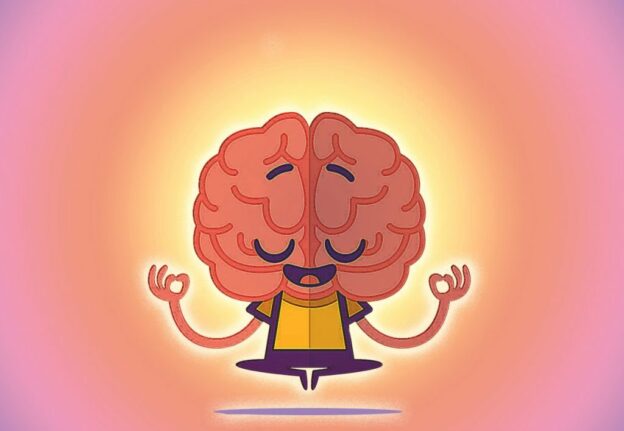The Neuroscience of Mindfulness: How It Rewires the Brain for Resilience
In recent years, mindfulness has gained widespread recognition as a powerful practice that can positively impact our mental health and overall well-being. From reducing stress to enhancing focus, this ancient technique has shown remarkable effects on the brain’s structure and function. Experts have delved into the inner workings and neuroscience of mindfulness and discovered its ability to rewire the brain for resilience.
Understanding Mindfulness:
Mindfulness is the art of being fully present at the moment, observing thoughts, emotions, and sensations without judgment. The practice often involves meditation, where individuals cultivate awareness by focusing attention on their breath, bodily sensations, or any chosen point of focus. Through regular practice, individuals learn to let go of distractions, disengage from ruminative thought patterns, and create a sense of inner calm.
The Brain’s Default Mode Network:
The brain has a default mode network (DMN) that becomes active when the mind wanders or engages in self-referential thinking. It is responsible for the “monkey mind” phenomenon, where thoughts swing wildly from one topic to another. The DMN is also associated with feelings of anxiety, worry, and rumination, which can contribute to mental health issues.
Mindfulness and the Prefrontal Cortex:
One of the key brain areas impacted by mindfulness is the prefrontal cortex (PFC). This region plays a crucial role in executive functions such as decision-making, attention, and emotional regulation. Regular mindfulness practice has been shown to increase PFC activity, allowing individuals to have better control over their thoughts and emotions.
The Amygdala and Emotional Regulation:
The amygdala, often referred to as the brain’s “fear center,” helps us process our emotions, particularly fear and anxiety. Mindfulness practice reduces the amygdala’s reactivity, leading to decreased anxiety and stress responses. This change in the amygdala’s function helps individuals become more resilient in facing challenges and emotional upheavals.
Neuroplasticity and Mindfulness:
One of the most fascinating discoveries in neuroscience is the brain’s ability to rewire itself in response to experience. This is a phenomenon known as neuroplasticity! Mindfulness meditation is a powerful driver of neuroplasticity. Mindfulness encourages the brain to form new neural connections and strengthen existing ones.
Gray Matter and Mindfulness:
Gray matter refers to the brain’s cell bodies and plays a vital role in memory, self-awareness, and cognitive functions. Studies have shown that individuals who regularly practice mindfulness meditation have increased gray matter density in regions associated with learning, memory, and emotional regulation.
Hippocampus and Memory:
The hippocampus is a brain region that plays a crucial role in memory formation and recall. Chronic stress and anxiety can negatively impact the hippocampus, leading to memory problems. Mindfulness practice has been linked to the preservation and even growth of the hippocampus, leading to improved memory and cognitive flexibility.
Mindfulness and Resilience:
With all these brain changes, it’s no surprise that mindfulness enhances resilience. By reducing stress, regulating emotions, and improving cognitive functions, individuals can better navigate life’s challenges with a sense of calm and balance. Mindfulness helps break the cycle of rumination and negative thinking, fostering a more adaptive response to adversity.
The neuroscience of mindfulness provides compelling evidence of its profound impact on the brain’s structure and function. Through regular practice, mindfulness meditation can strengthen the prefrontal cortex, dampen the amygdala’s reactivity, and promote neuroplasticity, leading to increased gray matter density and enhanced memory. As a result, individuals can develop greater resilience! This allows them to navigate life’s ups and downs with a clearer mind and a calmer heart. Embracing mindfulness daily can be a transformative journey toward a more resilient and emotionally balanced life.
Written by Krista Smith






